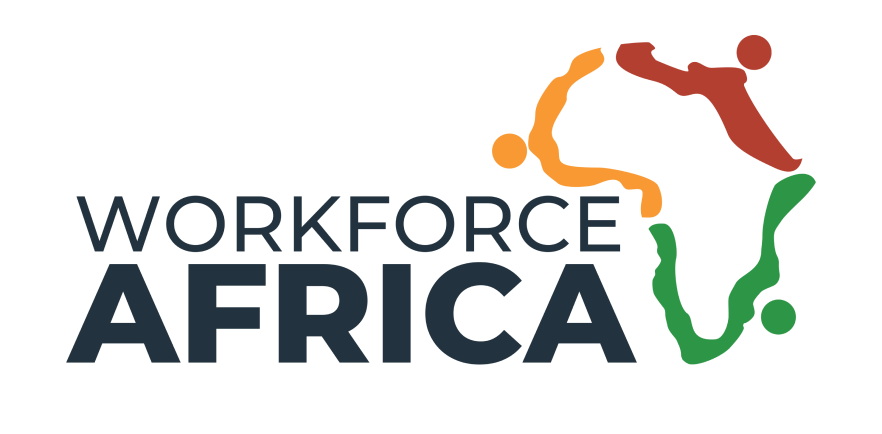Employment Law — Nigeria has become a leading business hub in Africa in recent years, making it attractive for international organisations interested in expanding. However, in establishing any organisation, employment contracts that abide by the country’s laws must be carefully drawn up and followed to the letter.
In Nigeria, employment laws are primarily responsible for regulating employment relationships across the labour landscape. Therefore, proper understanding and adherence to these laws that guide employers’ obligations and employees’ rights can protect your organisation from serious human rights violations.
This article provides a guide to employment laws in Nigeria so that you can avoid compliance breaches.
Employment Laws Dictating the Nigeria Labour Landscape
Employment laws in Nigeria are generally employer-friendly. However, federal and local laws govern contracts, terminations, wages and privacy, and organisations considering business in Nigeria need to be familiar with these laws. While the primary source of employment laws in Nigeria is The Constitution of the Federal Republic of Nigeria 1999 (as amended), nine other laws that guide organisations looking to gain entry into the Nigerian business market are;
Employment Law #1 — The Nigerian Labour Act, 1971
The Nigerian Labour law is the primary law guiding employment relationships in Nigeria. The Act describes workers as individuals that enter into or work under a contract with an employer. The contract may cover physical or administrative work, a service agreement, or “a personal contract to execute any work or labour.”
However, not all employed individuals are regarded as “workers.”; The Act categorises this set of employees as “persons exercising administrative, executive, technical, or professional functions as public officers or otherwise,” and they are subject to the terms and conditions of their employment contract.
There is an ongoing debate over whether the Labour Act applies to categories of workers outside of “unskilled” labour workers, but the Act remains the de facto law.
Employment Law #2 — Employee Compensation Act
This 2010 Act applies to all employees in the public and private sectors and serves as a protection from financial hardship in cases of work-related injury, illness or death. It establishes the Nigerian Social Insurance Trust Fund Board to implement the Employee Compensation Fund.
Under this Act, all employers in Nigeria will deduct 1% of each employee’s monthly salary and remit it to the Employee Compensation Fund.
The Act directs that employees’ dependents receive compensation when the employees suffer from work-related deaths. This compensation may range between 30% and 90% of the employee’s total monthly salary but may be subject to change depending on the needs of the employee’s dependents.
Accepting compensation for the death of an employee prohibits the deceased’s dependents from taking any legal action against the employer for such deaths.
Employment Law #3 — Industrial Training Act, 2011 (As amended)
The Industrial Training Act is one of six major statutory contributions mandated by Nigerian law to be paid. The Act promotes relevant skill acquisition in industry and commerce to provide a pool of indigenous workers to meet the economic needs.
The Act mandates that indigenous workers get job training to help them build relevant work-related skills. It also requires that the Training Fund Council may refund up to 50% of the amount an employer spends on training where the training programme is deemed satisfactory.
Another point of note is in Section 6, where the Act provides that employers with five or more employees, or less than five but with a turnover of 50 million naira (N50 Million) and above per annum will contribute 1% of its total annual payroll to the Fund. Failure to do this within the stipulated period will attract a fine equivalent to 5% of the unpaid amount for each month after the date the payment should have been made.
Employment Law #4 — The Pensions Reform Act, 2014

The Pension Reform Act of 2014 establishes guidelines for paying employees in the public and private sectors. Private sector employers with fifteen (15) or more employees are to provide a Contributory Pension Scheme for their employees after they retire.
Under the Pensions Act, an employee must contribute 8% of their monthly remuneration to a pension plan, while the employer is to contribute a minimum of 10% of that sum. However, the rates may change with the approval of the National Pension Commission.
Employment Law #5 — Trade Union Act and Trade Dispute Act
The Trade Union Act defines trade unions as any association of temporary or permanent employers or employees that controls the terms and conditions of employees through collective bargaining agreements and other negotiations. The law secures the right for workers to strike and peacefully picket while mandating that employers recognise trade unions.
The Trade Disputes Act also outlines rules for litigation dispute resolution between employers and trade unions, arbitration, and conciliation. Under this Act, trade disputes are under the National Industrial Court of Nigeria (NICN) jurisdiction.
Employment Law #6 — National Minimum Wage Act, 2019
Like its predecessor (the revoked National Minimum Wage Act 2004 (as amended), the Act applies to employers with twenty-five (25) or more employees and is applicable across all sectors, with the following exceptions:
- An organisation where workers operate on part-time contracts or a commission
- Employees in seasonal industries like agriculture
- Employees on a vessel or aircraft, where laws that regulate merchant shipping or civil aviation apply.
Some key developments of the Act include;
- The change made to the definition of part-time work as “work of a duration shorter than those for comparable full-time work in a sector or occupation”; meaning that regular working hours for organisations will now be subject to sectoral practices and the occupation of employees.
- Establishment of a “Tripartite Committee”, which comprises members of the government, labour and private sector to review the national minimum wage.
- Establishment of a five-year transitional period, during which the national minimum wage will expire and be reviewed under the provisions of the Act.
Employment Law #7 — The Nigerian Factories Act, 2004
The Nigerian Factories Act requires every workplace in Nigeria to ensure that adequate health and safety measures are put in place to prevent occupational accidents. The Act deals with the registration of factories, accident notification and investigation, safety and welfare, offences and penalties.
The general provisions of the Act relate to works of engineering construction or building operations and are designed to lead to sanctions of enforcement rather than compensations.
The Factory Act also places a duty on the occupants to maintain the factory in a clean state, and the conveniences must afford proper separate accommodation for males and females.
Importantly, it mandates the provision of a first-aid box or cupboard, the provision of Personal Protective Equipment & Clothing (PPE) and the fencing of machinery classified as dangerous.
Employment Law #8 — Personal Income Tax Act
The PIT Act guides the statutory payment of personal income tax from individuals, communities, families, trustees, and executors of settlements.
Although personal income tax is a federal obligation, it must be remitted to the Inland Revenue Service of the state where the employee resides, regardless of whether the organisations they work for are private or public.
The Federal Inland Revenue Service only accepts remittances from a staff of the Ministry of Foreign Affairs, Police and Military officers, foreigners and other Nigerians outside the country but earning income in Nigeria.
Employment Law #9 — National Health Insurance Scheme Act

The NHIS Act, which the National Assembly recently enacted, establishes the guidelines that provide easy access to health care for all Nigerians. In addition, the Act oversees the promotion, integration and regulation of health insurance schemes to facilitate health coverage for all Nigerian employees.
While the scheme has a coverage of about 98% for federal government employees, state formal and informal sectors coverage is still significantly low. Fortunately, there are guidelines for implementing and utilising the Basic Health Care Provision Fund (BHCPF) to achieve Universal Health by providing coverage for the informal sector.
The NHIS Act also regulates the activities of Health Maintenance Organisations (HMOs), Healthcare facilities, Mutual Health Associations (MHAs)and other Third-Party Administrators.
Here are some other quick general facts about employment laws in Nigeria
- The minimum hourly wage is thirty thousand naira (N30,000).
- Employees are entitled to 21 days of leave after 12 months of continuous service and 12 days for those under 16 years.
- The probationary period may not exceed three months.
- Pregnant employees are entitled to maternity leave.
- Employers must provide adequate means of protection against occupational hazards. They should also have a range of specific health and safety regulations.
- An employer reserves the right to dismiss an employee without notice for misconduct. Other reasons for termination are considered illegal and will lead to the payment of end-of-service gratuity.
- The National Industrial Court, established under the 1999 Constitution (as amended), has the exclusive jurisdiction to determine employment-related disputes.
As an international organisation thinking about expanding into Nigeria, familiarising yourself with these laws guiding the Nigerian Employment and Labour landscape is vital. For this reason, partnering with Professional Employer Organisations (PEOs) is becoming the go-to model for organisations with plans to expand into new markets.
At workforce Africa, we can help you navigate these employment laws and stay free of non-compliance that could jeopardise your business.
Schedule a consultation with us today. Let’s help you succeed.








